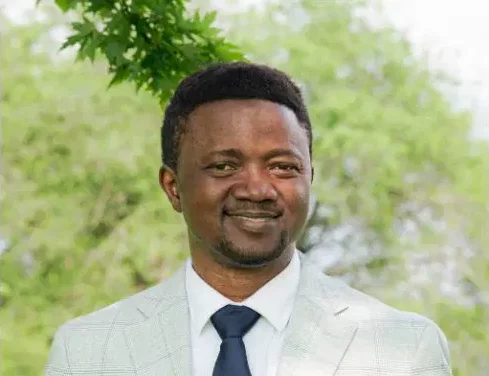A researcher and seasoned project manager, Olalekan Ajayi-Kaffi, has called for the adoption of the right project management methodologies for the appropriate circumstances.
In a statement on Wednesday, Ajayi-Kaffi noted that the different methodologies, Agile and Waterfall, were perfect for different scenarios.
In today’s world, project management has become essential across industries, and businesses have to decide on which PM methodology, Agile or Waterfall, is a perfect fit for their business. While Waterfall is a traditional, linear approach that divides projects into sequential phases—requirements, design, development, testing, and deployment—Agile focuses on speed, innovation, and continuous improvement.
Ajayi-Kaffi said the choice between these methodologies depends on factors such as project complexity, stakeholder engagement, and the need for adaptability. Both have unique strengths, with each excelling in specific scenarios.
He advised that the choice between Agile and Waterfall should depend on the project’s specific requirements and organisational communication dynamics.
“It’s not a one-size-fits-all solution. Agile is preferable for complex projects with ongoing feedback and evolving needs, while Waterfall is suitable for projects with defined scopes and compliance-focused deliverables,” he said.
Underscoring the critical role of communication in project success, especially in healthcare, where stakeholder environments are complex, the researcher said Agile’s iterative nature is more suited to the fluid demands of healthcare projects, where continuous updates and real-time feedback are vital.
He said, “Agile offers a flexible and iterative approach, crucial in a dynamic environment like healthcare. Unlike other fields, healthcare projects require constant adaptation to feedback. Agile enables continuous feedback, adaptability, and stakeholder engagement throughout the project lifecycle, fostering a responsive environment conducive to iterative development.”
Ajayi-Kaffi contrasts Agile with Waterfall, which he describes as linear and inflexible.
He explained, “Waterfall’s sequential structure mandates completing each phase before advancing, which can delay feedback and limit communication of issues until late in the process. This rigidity can create bottlenecks, particularly in multi-stakeholder environments where real-time responses are critical.
“In healthcare, miscommunication or delayed responses can directly impact patient outcomes and service delivery. Agile, with its focus on iterative communication and frequent collaboration, minimises these risks. Agile fosters a collaborative culture through principles of transparency, accountability, and regular feedback loops. Frameworks like Scrum emphasise sprints, reviews, and retrospectives to ensure stakeholder engagement. This proactive communication builds trust and improves engagement, especially in long-term healthcare projects where real-time feedback from clinicians leads to continuous refinement of deliverables.”
While acknowledging Waterfall’s advantages in projects with fixed objectives and minimal changes, Ajayi-Kaffi highlighted its limitations in dynamic environments like healthcare. “Waterfall’s structured path is beneficial in regulated environments where compliance and risk mitigation are paramount. However, its lack of iterative feedback mechanisms can hinder success in high-change projects,” he observed.
His research includes two case studies that illustrate the strengths and weaknesses of both methodologies.
In one, Agile was used to deploy hospital management software, with real-time feedback from clinicians and nurses enabling timely adjustments. This iterative process ensured the software was functional, user-friendly, and financially rewarding.
In contrast, a procurement system implementation using Waterfall faced communication challenges that delayed necessary adjustments. While Waterfall’s methodical planning and compliance alignment were advantageous, its rigidity underscored the need for flexibility in feedback and communication in dynamic projects.
“Healthcare projects are inherently dynamic, requiring methodologies that can pivot quickly,” he noted. “Agile’s iterative sprints and real-time feedback allow teams to adjust efficiently, whereas Waterfall’s linear process can delay responses, which in healthcare can have serious implications.”
Implementing Agile in healthcare requires a cultural shift from traditional hierarchical structures to decentralised decision-making and open communication. While acknowledging this challenge, he emphasised its long-term benefits.
“Transitioning to Agile necessitates a mindset shift toward inclusivity and proactive feedback loops. This shift fosters a more transparent and resilient working environment. Healthcare stakeholders, including patients and clinicians, often have evolving needs throughout a project’s lifecycle. Agile allows these needs to be incorporated as they arise, ensuring outcomes meet or even exceed expectations,” he said.
By contrast, he maintains that Waterfall’s rigidity often leaves little room for mid-project adjustments, potentially leading to dissatisfaction if initial requirements become outdated.
He also advocates for hybrid approaches that blend elements of both methodologies. “In some projects, combining Waterfall’s rigorous planning with Agile’s adaptability provides the best results. For example, certain phases of large-scale healthcare or technical projects may benefit from Waterfall’s structure, while Agile’s iterative communication can be applied to phases requiring flexibility,” he suggests.
The research highlights the importance of selecting the right methodology based on project scope, complexity, and stakeholder needs.
Ajayi-Kaffi holds a master’s degree in project management from Missouri State University in the United States.















